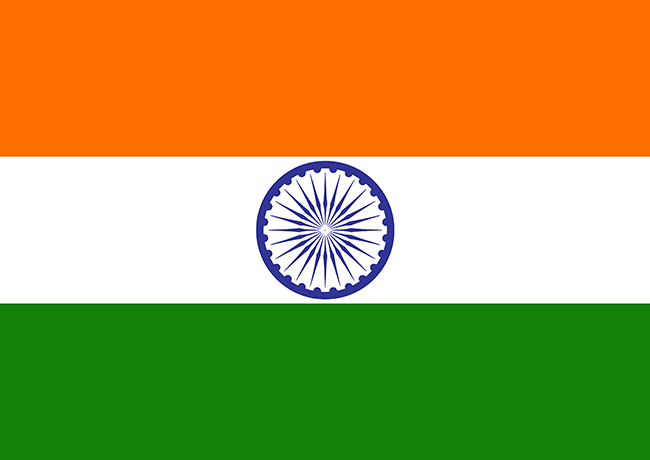People exercise their rights and freedom under true democracy in India. There are no barriers for practicing one’s culture and beliefs. One does not fear having his/her life lost on the grounds of their caste, color or creed. Democracy form the cornerstone of peace and prosperity in India. You can see churches, mosques and temples in your surroundings – where people pray and perform their religious rituals. Extremism, which is the root of violence and bloodshed in many countries, has no room in that multi-ethnic country for two major reasons.
Firstly, the ideologues are able to express their thoughts and feelings and act upon them without barriers. There are no restrictions ahead and they are entitled to practice their beliefs freely but on the basis of not curtailing others’ liberty. Secondly, the government focuses the bulk of its attention on public security and prevents from the infiltration of the radical groups. It is self-explanatory that security plays the most crucial role in a country and paves the way for other activities such as getting education, making business, employment, investment, etc. But whenever people’s rights and freedoms are at stake, the public will show no tendency towards the said issues.
Indian nation lives with peace in a violent-free country and there is a sense of hope and trust in the air. There seems no gap between the state and nation. The government does its best for the citizens’ protection and betterment and interacts with them through conducting outreach programs. Freedom of expression is widely practiced among the public and officials do not mind being criticized by media or an individual. Media, which symbolize freedoms of thought and speech, hold the strongest sway in India. Citizens can have their say to the officials and vice versa through media. Such exchanges of thoughts and words will remove suspicion between the state and nation. Moreover, it is believed that freedom, mainly freedoms of beliefs and expressions, is one of the basic elements of democracy.
Election, which is called the “festival of democracy”, in India is conducted very transparently to ensure the rights and dignity of the citizens. Each and every vote is considered significant for the government and people are facilitated – does not matter if one lives in a distant place to take part in election. Indian Deputy Election Commissioner Umesh Sinha, whom I had a meeting with on Wednesday, appreciated the citizens’ active participation in presidential election in 2014. In terms of women’s role, he said that women outnumbered men in 16 areas in 2014 and their partaking was beyond imagination.
It is crucial to see that Indian’s Election Commission is fully independent and the officials work under its order during election. To mobilize the public and strengthen motivation, facilitation and participation, the government launches Systematic Voters’ Education And Electoral Participation (SVEEP) for the citizens. Moreover, SVEEP spreads awareness for people and encourages them to deem vote as an obligation for being citizens.
Needless to say that in a democratic country, election symbolizes the active and direct participation of the people of a nation to form a government. It is universally accepted that for a democracy to work as one, it is citizens to elect their leaders and representatives and, in turn, rule themselves.
The election represents the general will of the people, as expressed in their votes. The voting population expresses its choice of candidates, political parties and government through exercising their franchise at regular intervals. The vote of electors crystallizes into the mandate of the people.
The voters are the main stakeholders in a democracy and they vote with the belief that government, as the main arbiter of the future of the country and its people, will provide every citizen the best possible policies to build a better country, a better community and a better life. They also believe that it will work in the most efficient way to widen their economic, and social welfare, alleviate poverty and reduce the gap between the rich and the poor, build infrastructure and ultimately improve the quality of life.
The legitimacy of the entire democratic system of a government depends on the efficacy and effective working of the electoral mechanism – which is conducted well in India. If the verdict of people, which forms the basis of legitimacy of the political system, is vitiated by unethical methods, the faith of the people in the electoral system gets eroded and ultimately destroys the very foundations of democracy.
Democracy and elections are inextricable. In the Indian context the emphasis has always been on creating a social order in which the people, by casting their votes without any coercion or inducement, make decision about their government.
When India got its independence in 1947, planning and organizing general elections to elect a representative government on the basis of universal adult suffrage was highly appreciable. India can be an example to our country and we have to learn all the positive aspects from our neighbors – be it India or any other countries. Since democracy is practiced in the best way in India and people live in peace, irrespective of their religious, racial or sexual backgrounds, let’s keep it a paragon of democratic country for our own country and the government will have to protect the rights and dignity of the citizens in a better way.
Home » Opinion » Why Not Learn from India?
Why Not Learn from India?
| Hujjatullah Zia

